TL;DR | DESIGNED A DATA ENRICHMENT PROCESS THAT SCALES
As a Product Designer at Philips, I led the initiation and end-to-end design of a cross-platform data quality enhancement program—introducing a modular enrichment pattern as the first step toward personalized user experiences and improved data integrity.
SOLUTION SNEAK PEEK
I piloted a CRM data enrichment flow using personalized emails. This process is now being scaled across countries.
IT INCLUDED
- Tailored prompts based on existing CRM info
- One-click options to reduce friction
- Fallback to profile update if no option fits
The process didn’t just fix one gap — it set the foundation for smarter data collection going forward.
RESEARCH APPROACH | MIXED-METHOD
I combined CRM data analysis, benchmarking, and ideation sessions to design a solution rooted in real-world constraints and scalable logic.
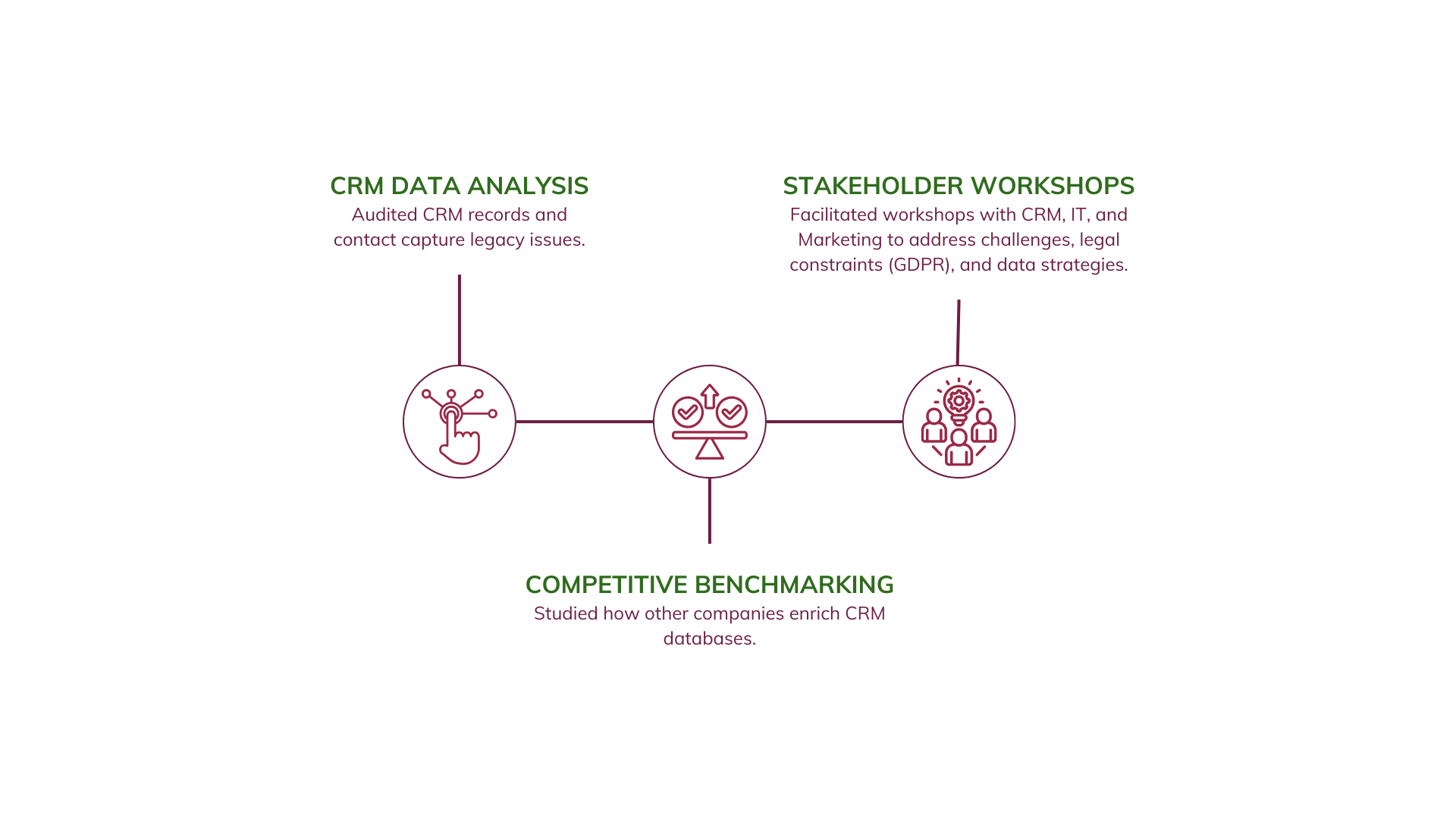
RESEARCH | CRM DATA ANALYSIS
I discovered that at least 60% of CRM contacts were missing data needed for being sent emails.
The CRM data showed 60% of leads had missing fields. That blocked downstream activities like segmentation and personalization. We needed a better way to fill these gaps — especially for leads already in the system.
I flagged the issue to other teams but focused on what we could control: designing a scalable solution that works with existing tech.
RESEARCH | COMPETITIVE BENCHMARKING
Findings showed that multiple methods were used, but gated content was the no.1 preference.
I ran a competitive benchmarking to get a grasp on best practices. Our findings were that the most used tactic was gathering information through gated content. However, there were other opportunities such as email, LinkedIn, etc. to be explored.
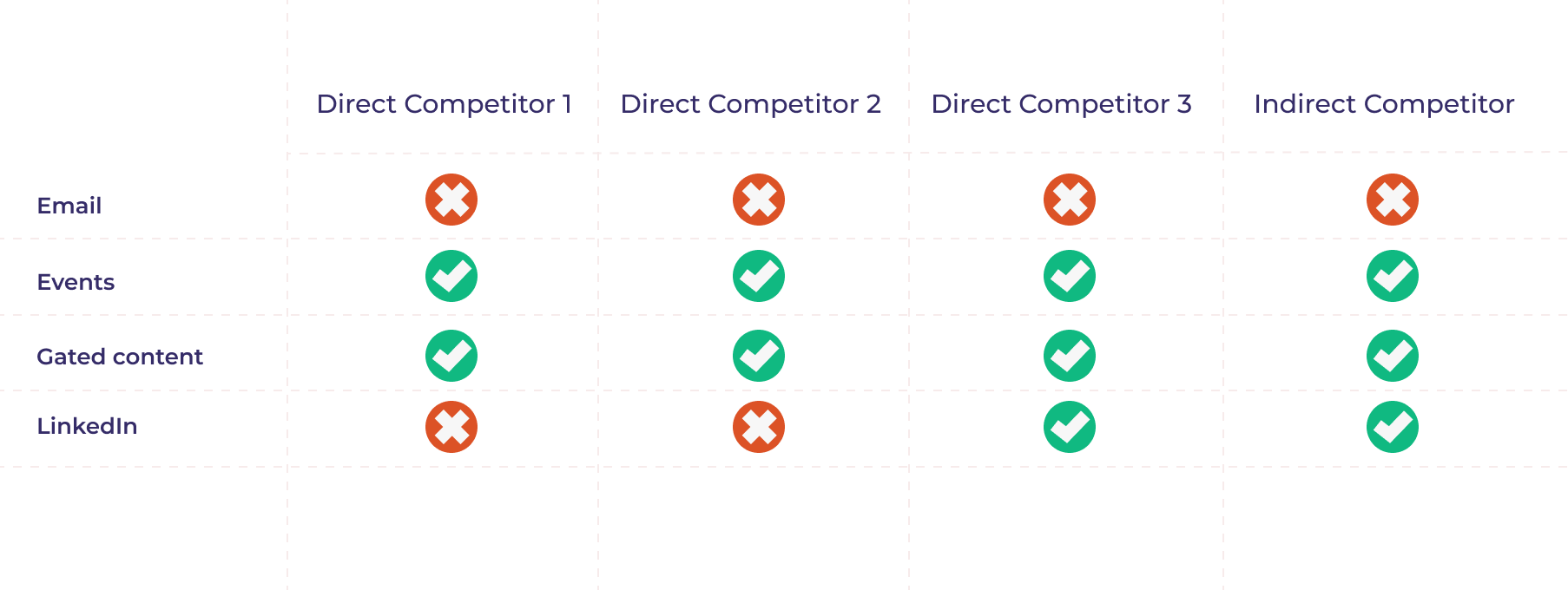
IDEATION WORKSHOPS | BRAIN WRITING & FEASIBILITY/IMPACT MATRIX
Brain writing gave us the ideas, but the feasibility/impact matrix showed us the way: email.
We used brainwriting to collect ideas, then filtered them with a feasibility/impact matrix. I helped guide the team toward a pragmatic direction — one that made sense with our CRM system, timelines, and user expectations.
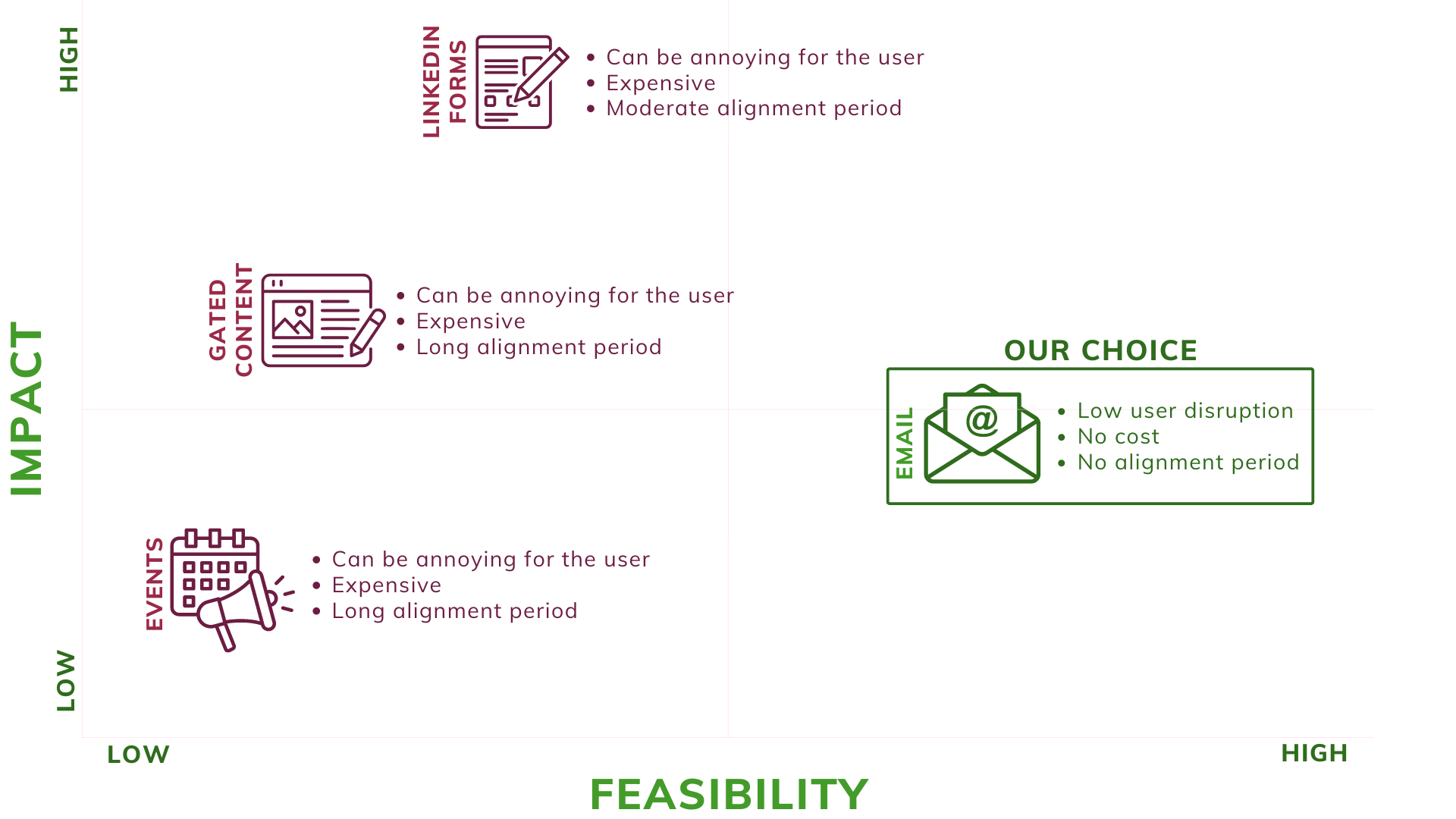
IDEATION WORKSHOPS | SKETCHES
A clear vision achieved by sketches.
I sketched out early concepts of how the email flow would work. This helped the team quickly visualize and stress test the logic across different scenarios and CRM segments.
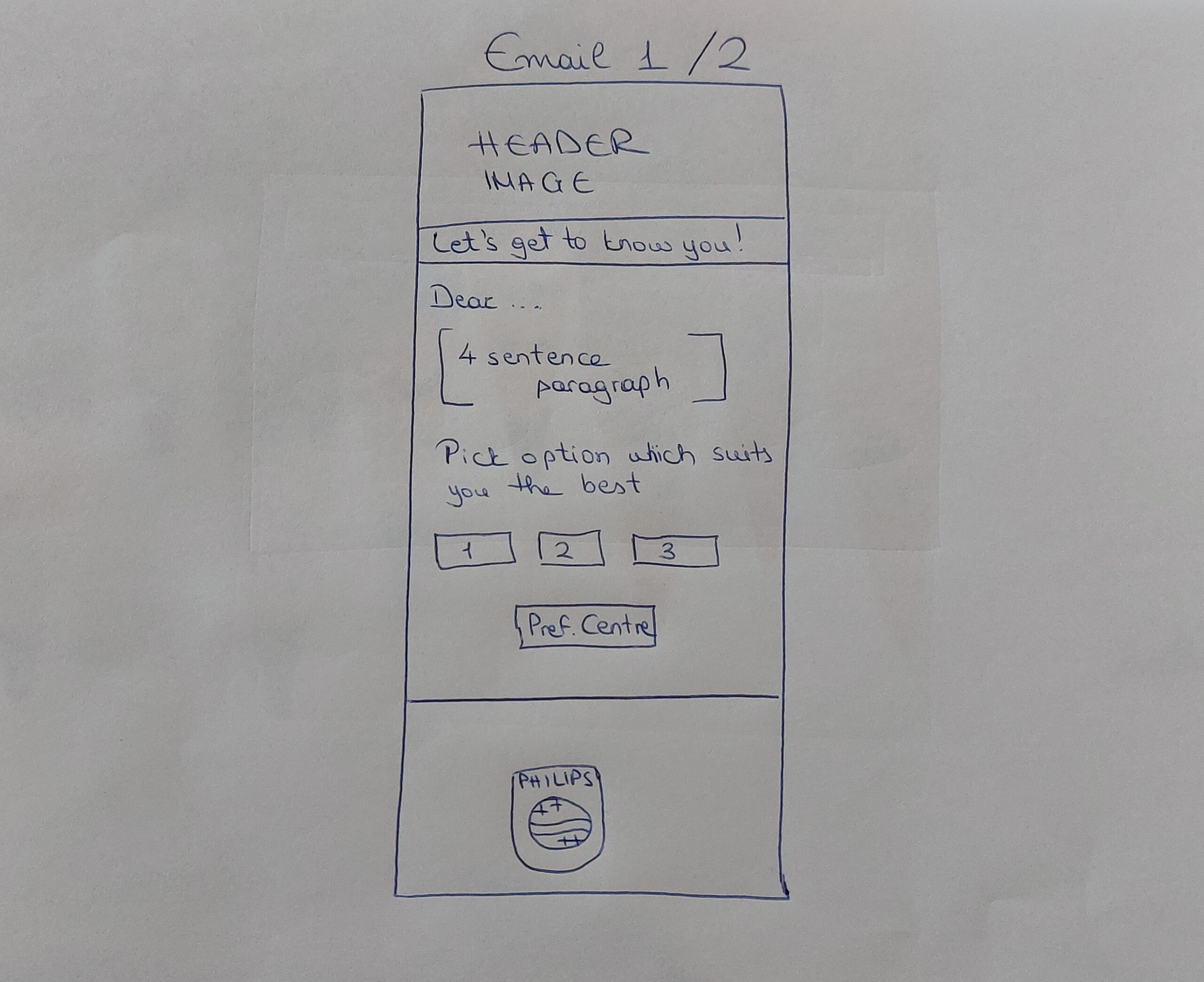
TRADE-OFFS | BALANCING USABILITY & BUSINESS IMPACT
Personalizing emails required balancing automation with data accuracy and user engagement.
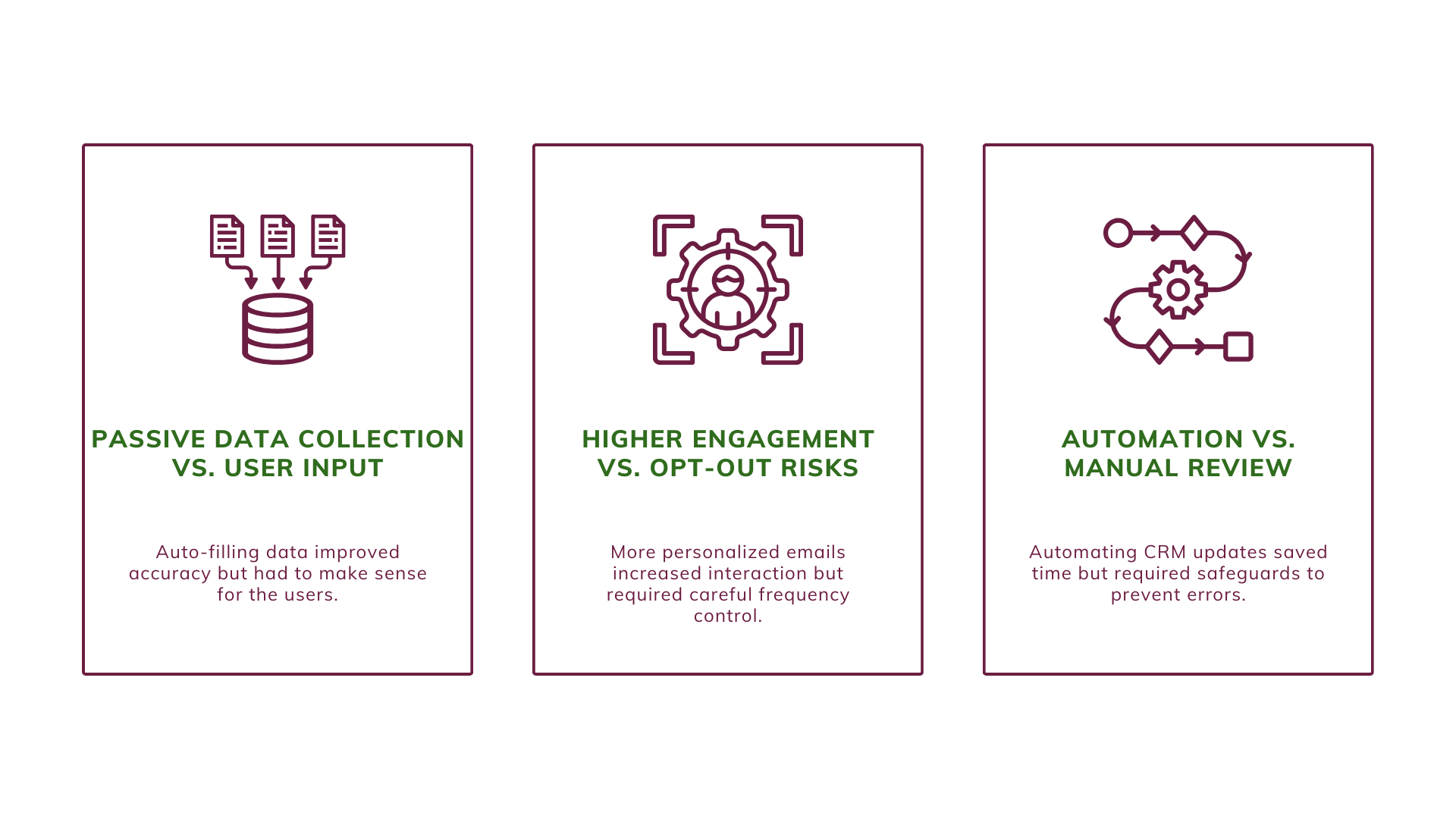
PROTOTYPE | BACK-END DATA MAPPING
Personalized options for our contacts to choose from.
I mapped CRM fields to dynamic email components. This helped automate which leads got which email version — creating a template that can scale across products and regions.
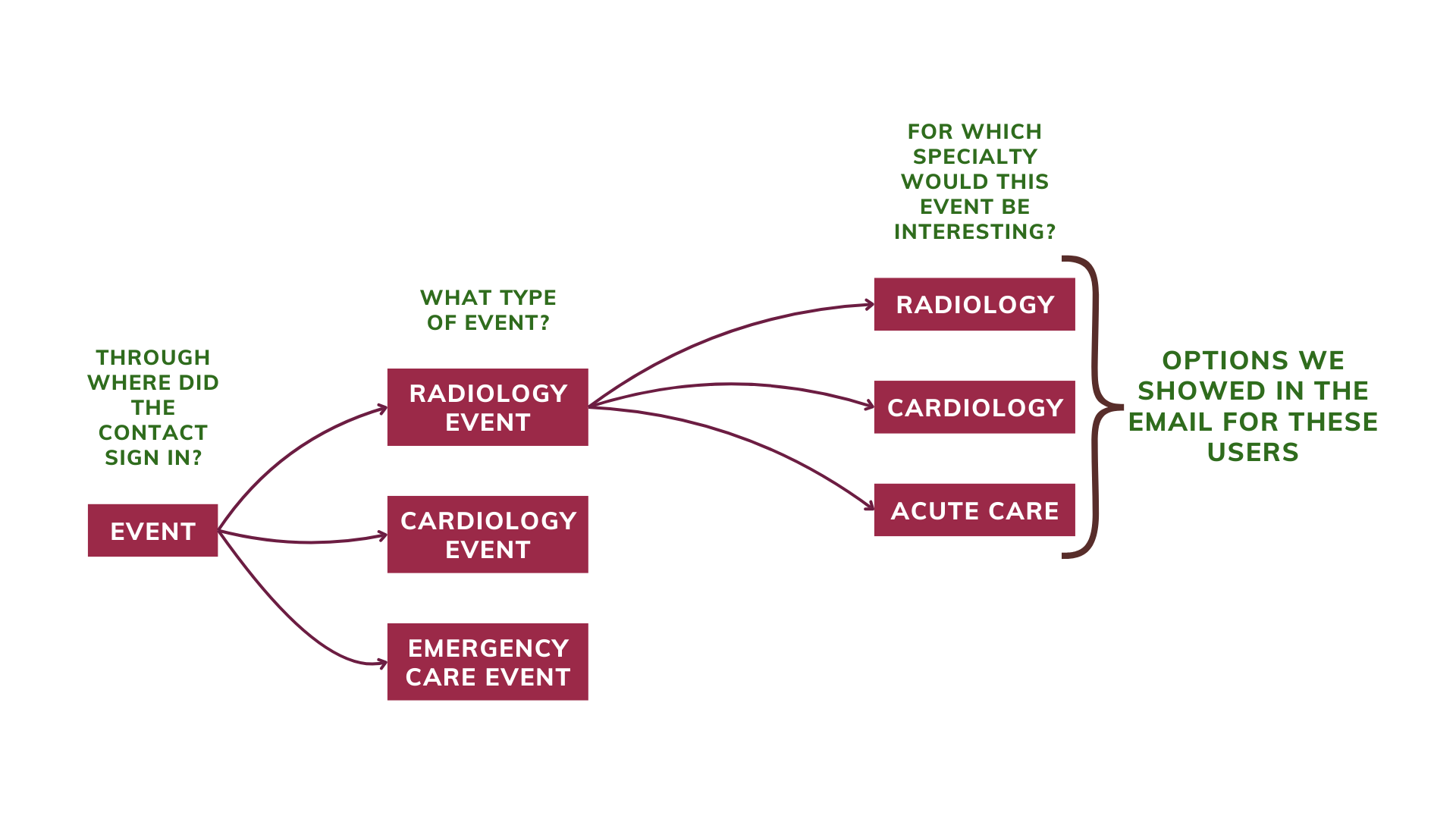
PROTOTYPE | WIREFRAMES
From sketches to hi-fi wireframes, almost ready for launch.
I created wireframes showing how the data logic would translate into a simple experience. It was a balance between clarity, personalization, and brand tone.
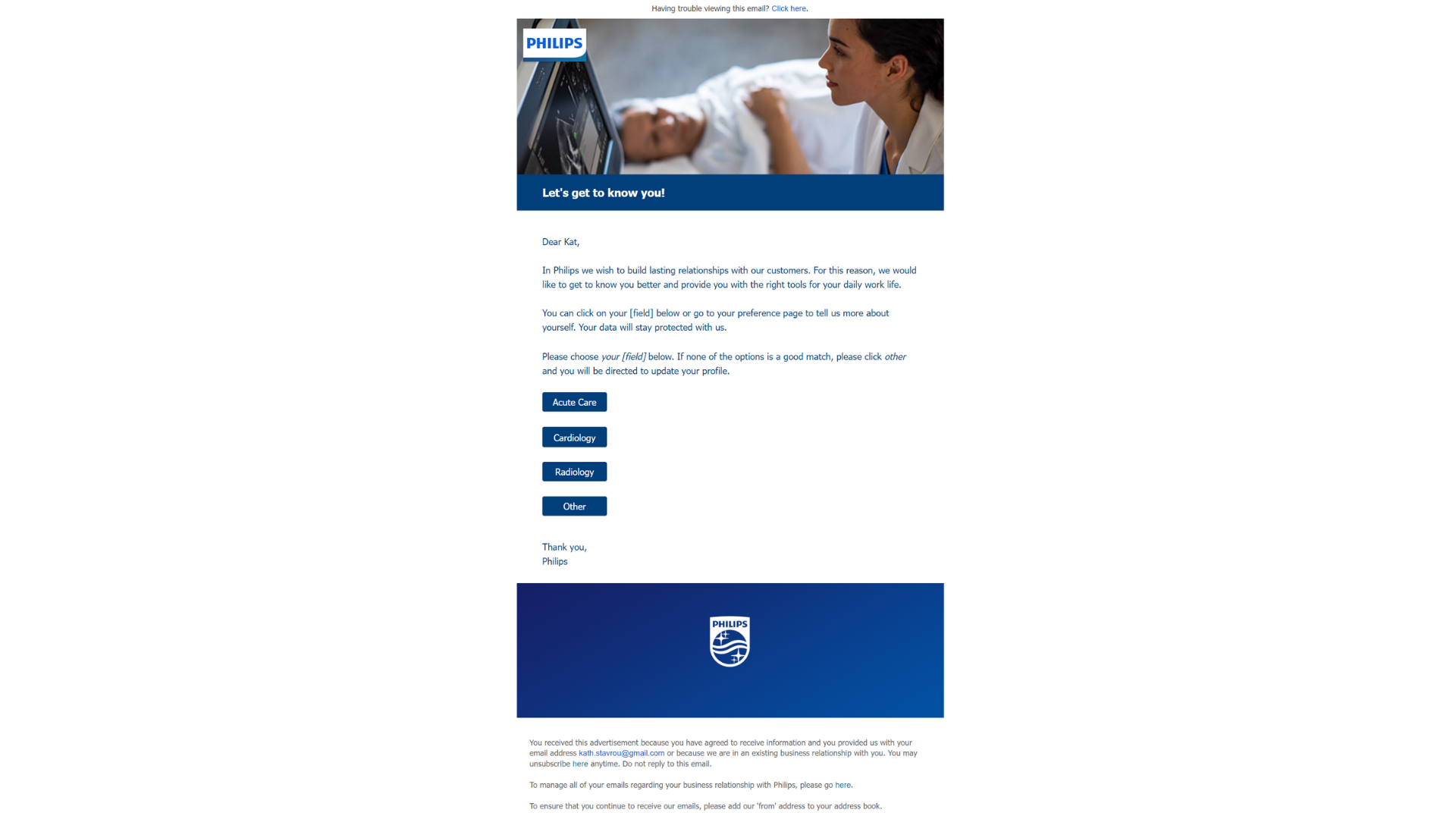
PROTOTYPE | USER FLOWS
User flows helped stakeholders and devs understand how this data enrichment logic would work end-to-end. This made it easier to get buy-in and implement the solution across touchpoints.
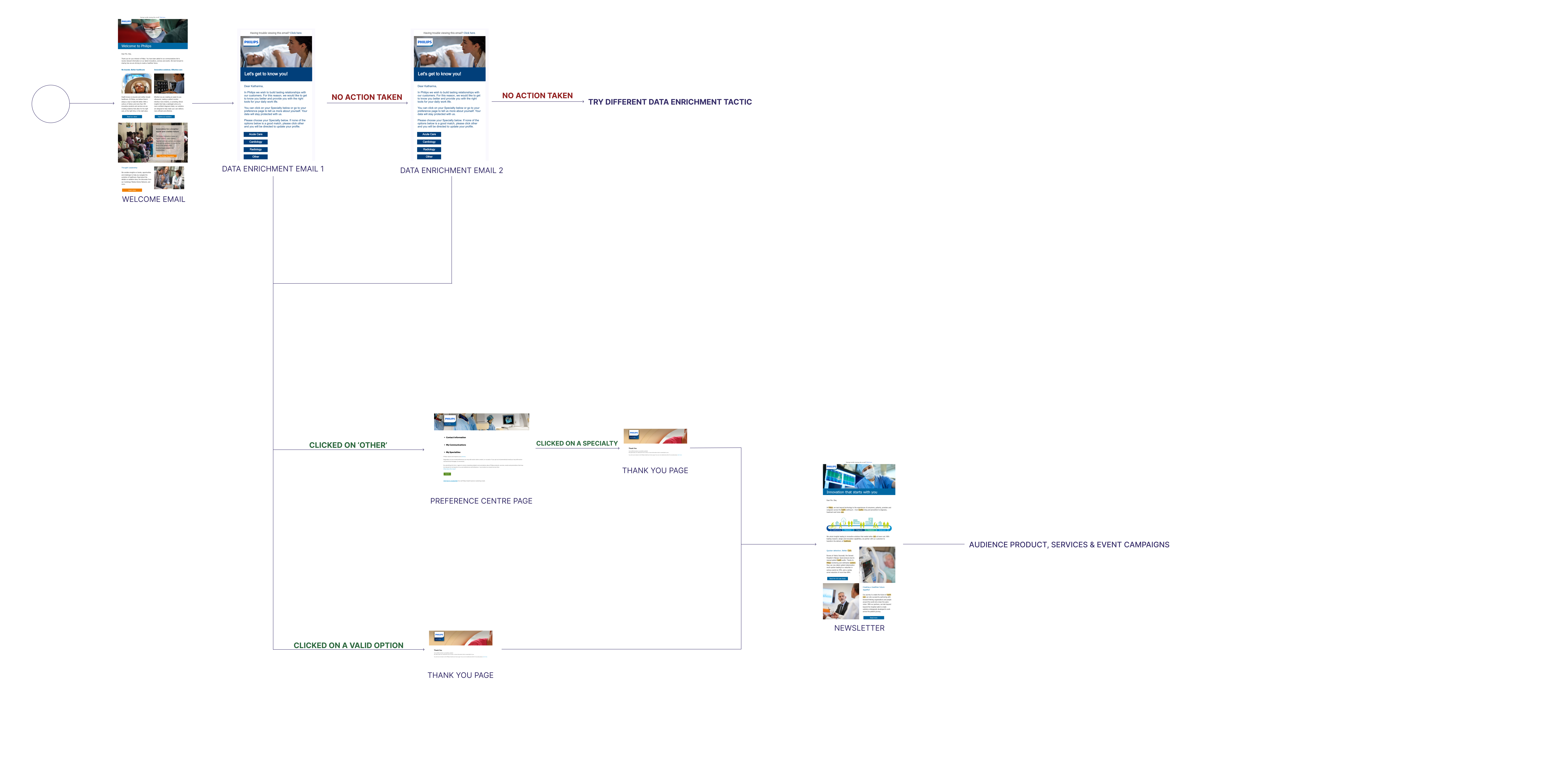
PROTOTYPE | PILOT TESTING
Our pilot program was successful!
We tested our solution to see if we can indeed gather data from our contacts through email. The only caveat was the we sent out tailored emails to the U.S. users based on the data mapping exercise. We wanted to see if a more tailored approach would perform better.
COUNTRIES
Australia, Latin America, UK & USA
NO. OF CONTACTS
35% of total database
TESTING | RESULTS
This approach proved that improving data quality doesn't need to rely on complex forms or gated content. It needs the right moment and message.
5%
Click-through rate
0.5%
Unsubscription rate
+15%
User Engagement
RETROSPECTION | NEXT STEPS
The project ended, but let's see what else I'd explore.
PHASE 1: USABILITY TESTING
Conduct usability tests on our solution and see how we could improve the copy and overall design for further optimization.
PHASE 2: EXPLORE OTHER TACTICS
Test other methods, such as LinkedIn forms or gated content. I'd like to see which method is the most successful and for which audiences.
PHASE 3: AUTOMATE DATA MAPPING
Integrate automatic CRM updates based on behavioral data to reduce manual input.
RETROSPECTION | LEARNINGS
My learnings from this project.
DON'T KNOCK IT TILL YOU TRY IT
There were many reservations on whether our solution would work. In order to just test it, I had to promote a mindset of "let's test it, it's okay if we fail". Quite difficult but always part of the job! The results were positive and thus, it was also confirmed that the mindset was right too!
PERSONALIZATION MATTERS
It may be tempting not to go the extra mile as you may be thinking that the impact will be too little. However, personalization matters so much and the impact can be bigger than anticipated.
BUILDING A REPEATABLE MODEL
Instead of patching the problem, we created a lightweight data enrichment flow that scales. It’s now being reused for other regions.
Selected Works
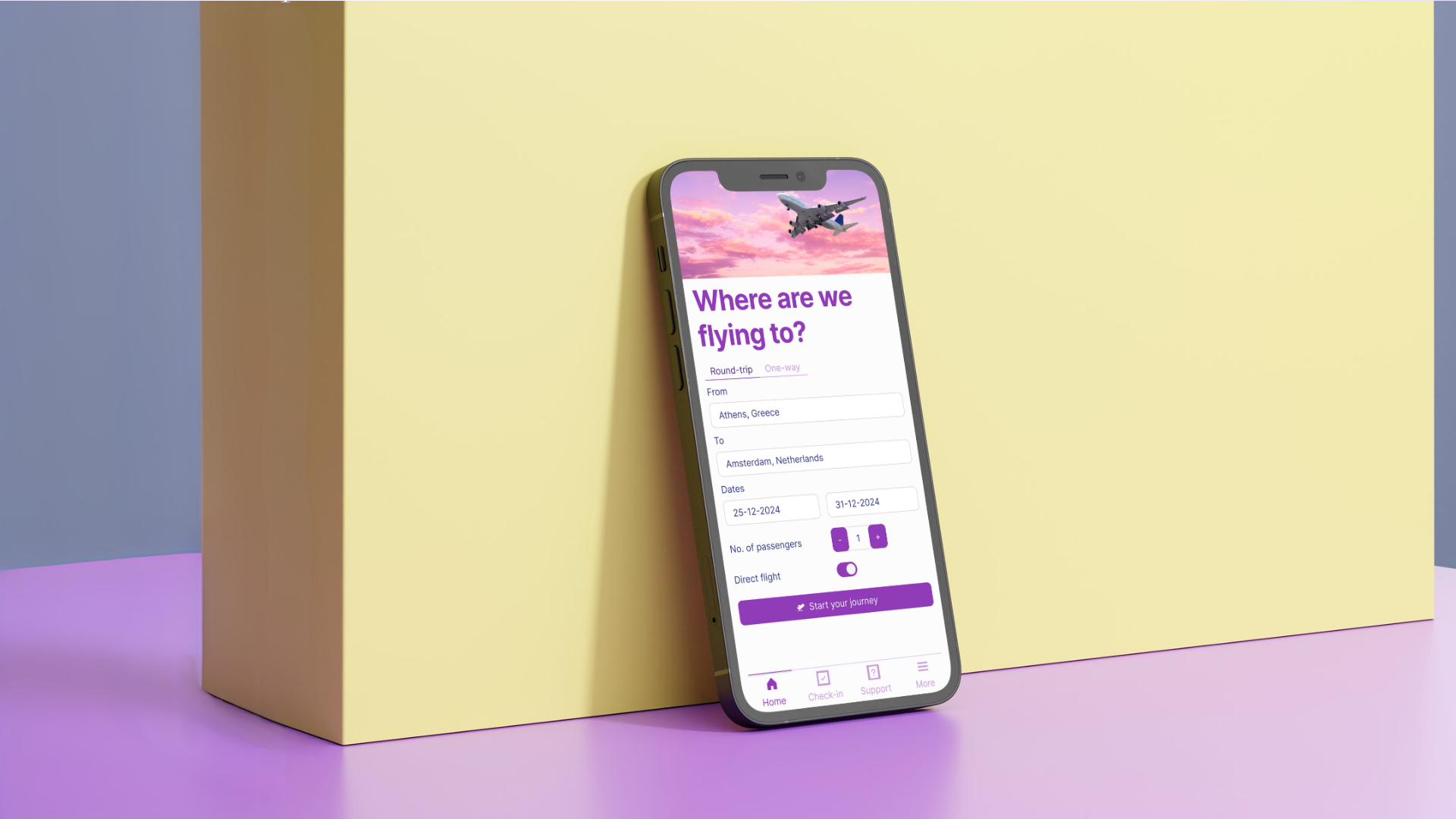
Fly High, Not Hard: Designing a User-First Flight Booking App ExperienceProduct Design | Research | Wireframes | Prototype
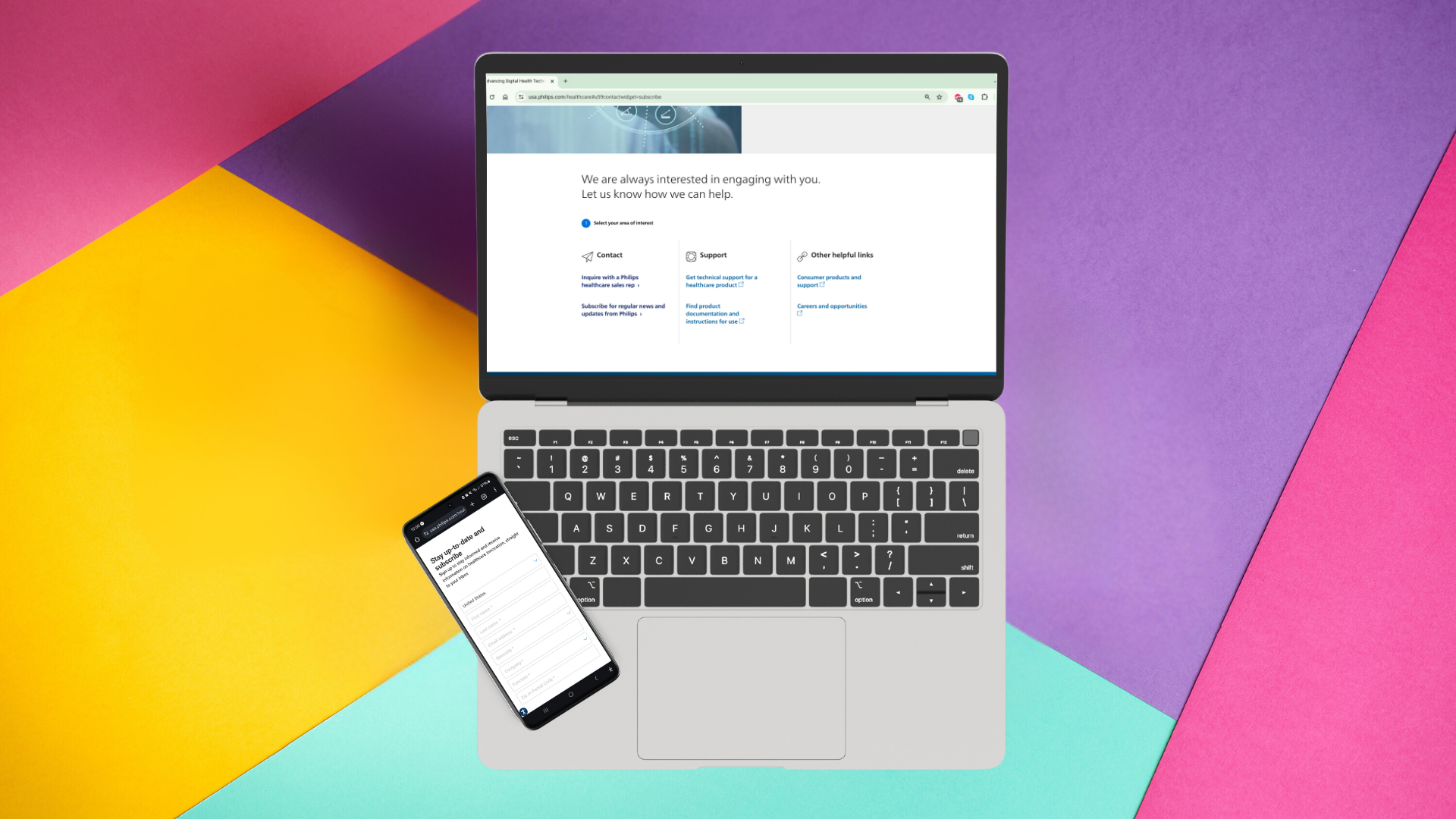
Philips Lead Capture Makeover: From Okay to MarvelousProduct Design | Facilitation | Customer Journeys | Wireframes
Museum CX Overhaul: Crafting a Visitor Journey That's a MasterpieceService Design | Research | Personas | Customer Journeys
KS
Let's create together
Phone: +31628750362
Email: kath.stavrou@gmail.com
LinkedIn: @kathstavrou
© Katharina Stavrou